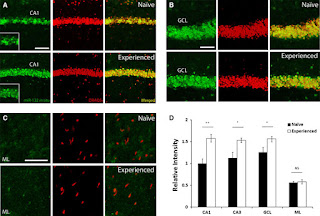So, I am one of those elusive millennials that the Church is always worried about. Supposedly, I’m a part of that apathetic generation, that generation that technology has ruined and and that our parents have spoiled.
And I am also supposed to be of the colorblind generation. While many people of color learn at a very young age what race means for them, I didn’t really learn I was white until college. While I was theoretically aware of race, I had been taught to see no differences. I was taught that we were all the same. That was what was polite.
In high school I believed, we should all just get along. "Pull yourself up by your bootstraps" and pull your pants up too while you’re at it. And I knew I could ignore those tidbits of history that I learned in February, because it wouldn’t be on the final exam anyway.
But when I got to college I joined a Christian fellowship on campus that taught me that our God loves color, loves our culture, and wants us to learn from one another. I learned that we worship a Triune God, perfectly diverse and perfectly united. I learned we worship a God of the oppressed. And I learned that through my isolated dominant culture lens, I could see only dimly the true character of the God I worshiped.
And that launched a journey. I learned how race and ethnicity affected the daily lives of those around me. I learned the history that wasn’t taught to me in school. I read the books I had always passed over in the library. I found out about:
The school to prison pipeline, and stand your ground
About internment camps and exclusion acts
About broken treaties, and trails of tears,
About dreamers trying get to college and children at our border
And about the millions that were colonized and told that their own culture
was not appropriate for worshiping our white God.
I once was colorblind, but now I see.
 |
| From life as a neuroscientist... |
So I turned to the digital world to continue my racial education, to serve as the professors of justice and theology that I never had. I started my own blog to hold me accountable and help me to continue to learn. It's called By Their Strange Fruit after the Billie Holiday song and the verse in Matthew that says "ye shall know them by their fruit." Because I believe it is no hyperbole to say that people are being killed in our own backyards because of the Church’s inability to bear prophetic fruit to the nations. Too often we bear 'strange fruit' instead.
It was during this time that my husband and I joined UM Church for All People, which is a multi-race, and multi class church on the South Side of Columbus. We joined out of a belief that isolating ourselves among believers of similar backgrounds only deprives our own souls of God’s majesty. We moved onto the block to be in relationship with the surrounding community. And we adopted a value of downward mobility, not as a charitable endeavor, but as one fundamental to our own souls.
However, the time came for interviews, professorships, and publications. It was time to move away.
But Jesus is a troublemaker and he would not let me go. My labmates thought I was foolish and my family had their questions. But I have never felt something so good, so right, as giving my all to the work of building the Front Porch of the Kingdom of God.
 |
| At the Living Faith Award breakfast |
And it set me back on my heals. When I finally decided to leave neuroscience to work at Church
for All People full time, it was the easiest hard decision I have ever made.
Because I am of that generation that would rather do something meaningful than something marketable. That generation that would rather make a difference than make a profit. That values authenticity over apathy.
I am of that generation that has been woken up by Trayvon Martin, and Michael Brown, and Sandra Bland, and Aiyana Jones, and Tamir Rice, and Freddie Grey, and Mya Yong, and John Crawford, and Eric Garner. Won't you say their names.
I am of that generation that is tired of my sisters and brothers being used as mascots and as Halloween costumes. That knows that undocumented doesn’t mean unloved or unworthy.
We are not a colorblind generation. We know we are not all eyes, we are not all ears, we are not all hands or feet. And thank God that in all God’s wisdom that we are not!
And I am of that generation that wants my church to believe in that vision as well.
 So that’s why I stand with you today.
So that’s why I stand with you today.Because I love Christ’s Church.
And because I love, I want us to be better.
And it's places like this community that can help us do that. Amen.





